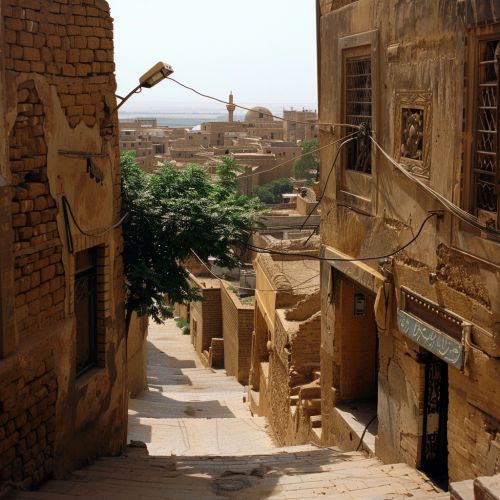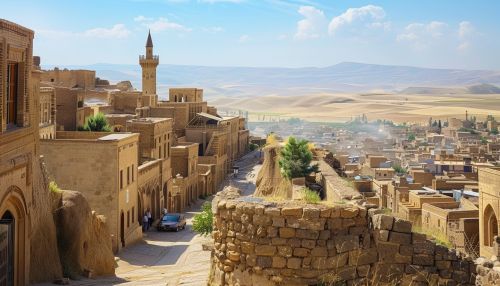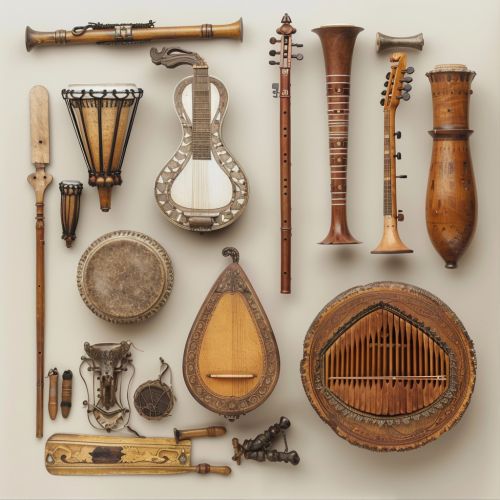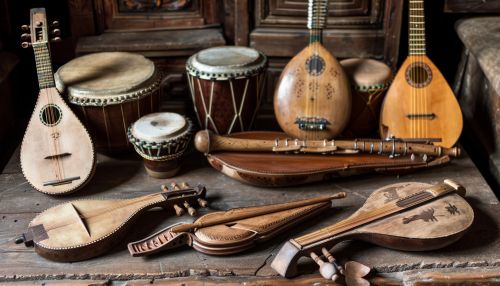Al-Farabi
Early Life
Al-Farabi was born in the city of Farab, located in what is now modern-day Kazakhstan, around the year 872. His parents were originally of Persian descent, and his father was a high-ranking military officer. Despite the military background of his family, Al-Farabi showed an early interest in intellectual pursuits, particularly in the fields of philosophy and music.


Education
Al-Farabi received his early education in Farab, where he studied logic, mathematics, and natural science. He then traveled to Baghdad, the intellectual center of the Islamic world at that time, to further his studies. There, he studied under renowned scholars of various disciplines, including Islamic jurisprudence, linguistics, and metaphysics.
Contributions to Philosophy
Al-Farabi's contributions to philosophy are extensive and varied. He is often referred to as the "Second Teacher" in Islamic philosophy, with Aristotle being the "First Teacher". His works touched upon a wide range of philosophical topics, including metaphysics, ethics, political philosophy, and logic.
Metaphysics
In metaphysics, Al-Farabi was a proponent of neoplatonism, a philosophical system that posits a single source of all existence, often identified with God. He argued that all beings emanate from this single source in a hierarchical order, with each level of being less perfect than the one above it.
Ethics
In the field of ethics, Al-Farabi's work was heavily influenced by the moral philosophy of Plato and Aristotle. He believed that the ultimate goal of human life is to achieve happiness, which he defined as the perfection of the soul through the acquisition of knowledge and virtue.
Political Philosophy
Al-Farabi's political philosophy was also deeply influenced by Plato and Aristotle. He believed that the ideal state is one in which all citizens are virtuous and work together for the common good. He also argued that the ruler of such a state must be a philosopher-king, possessing both practical wisdom and theoretical knowledge.
Logic
In the field of logic, Al-Farabi made significant contributions to the development of Aristotelian logic in the Islamic world. He wrote numerous commentaries on Aristotle's works and developed his own system of logic, which was widely used in the Islamic world for centuries.
Contributions to Music
In addition to his philosophical works, Al-Farabi also made significant contributions to the field of music. He wrote a major treatise on music, titled "Kitab al-Musiqa" (The Book of Music), in which he discussed the theory and practice of music in great detail. He also invented several musical instruments and developed a musical notation system.


Later Life and Death
In his later years, Al-Farabi traveled extensively throughout the Islamic world, visiting Egypt, Syria, and other regions. He continued to write and teach until his death in 950 in Damascus, Syria.
Legacy
Al-Farabi's works had a profound influence on both the Islamic world and the West. His philosophical ideas were widely studied and debated by Muslim scholars, and his works on logic were used as textbooks in Islamic schools for centuries. In the West, his works were translated into Latin and influenced the development of Scholastic philosophy.
